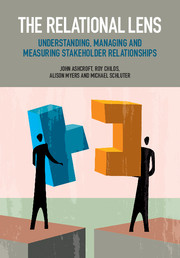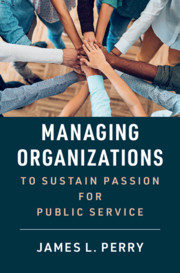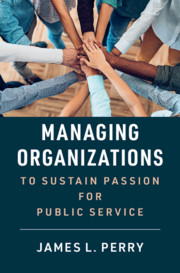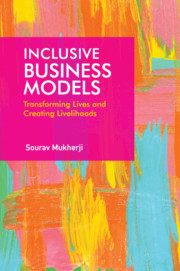The Relational Lens
Drawing on the authors' combined years of experience in both private and public-sector organisations, this practical book highlights the importance of relationship building between individuals, groups and organisations in diverse contexts. It will make a valuable read for business professionals and graduate students in fields as varied as change management, leadership, organisational psychology, and organisational behaviour. Employing the Relational Proximity® framework, it provides tools for informing assessment of the relational impact of policy and management decisions, enabling evaluation of organisational relationships, providing a language for constructive discussion of strained relationships, and integrating a range of models and perspectives within one process. Using real-world case studies and models, the conditions within which people are more likely to form and conduct effective relationships are also examined. This combined approach provides the language and concepts to enable constructive discussion and actionable solutions in building trust and sustainable value.
- Provides an overview of why relationships are important and helps readers understand cultural and institutional challenges to developing effective relationships
- Gives a generic framework for assessing relationships within and between organisations which can be used to analyse any type of relationship in any sector
- Integrates a wide range of insights from different sectors and disciplines, enabling the reader to understand how relationships are influenced or anticipate the impact of decisions
Reviews & endorsements
'What the authors do quite successfully in this volume … is to explain how components of their relational proximity framework fit together with more ephemeral concepts such as trust, empathy, commitment and respect. This book has been many years in the making but arrives at just the right time.' Vincent Neate, Social Value and Intangibles Review
'The Relational Lens is a well-written book. It will appeal primarily to an applied and lay audience, but it references a good deal of psychological research. Its main contribution might be that it adds fuel to the burgeoning fire around the focus on interpersonal relationships in the organization. For this reason, it should be taken seriously by anyone who wants to understand the complexities of organizational life, relational life in particular.' Richard D. Harvey and Andrew Bleckman, PsycCRITIQUES
Product details
October 2016Adobe eBook Reader
9781108110754
0 pages
0kg
18 b/w illus.
This ISBN is for an eBook version which is distributed on our behalf by a third party.
Table of Contents
- Introduction. The dark matter of organisations
- 1. The value and importance of relationships
- 2. Why organisations should think relationally
- 3. How to measure relationships
- 4. Directness - high touch organisation
- 5. Continuity - connection across time
- 6. Multiplexity - context for breadth
- 7. Parity - power, balance, fairness
- 8. Commonality - overlap of purpose
- 9. What relational proximity builds
- 10. Relationships between stakeholders
- 11. Managing, measuring, reporting, regulating
- Epilogue.





